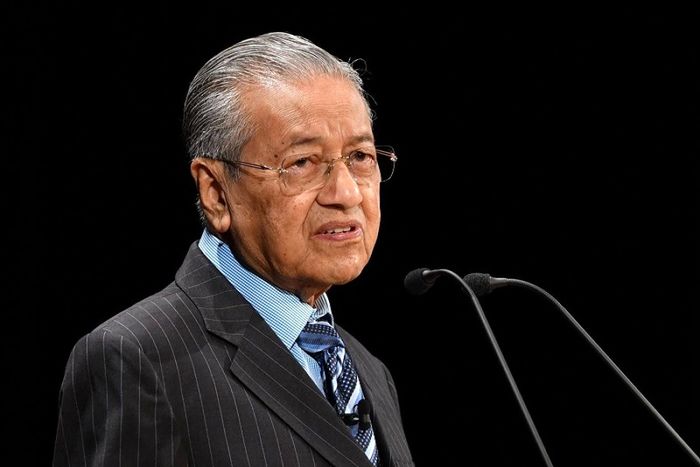In an interview with the website of the Strategic Council on Foreign Relations, Mohammad Taghi Rajabi cited Malaysian Prime Minister Mahathir Mohamad’s resignation as saying: “Alliance of Hope parties, especially People’s Justice Party and the Democratic Action Party, had asked Mahathir in a controversial meeting last Friday to set a date for handing over power to Anwar Ibrahim. The meeting was fruitless. Subsequently, Anwar Ibrahim’s deputy in the People’s Justice Party, along with 10 of his party members, resigned from the People’s Justice Party.
Referring to Mahathir’s resignation from the leadership of the Alliance of Hope and his own party’s leadership, he said: The result was that the majority in the parliament faced problems, and then Mahathir submitted his resignation to the King. Before his resignation, Anwar Ibrahim and other Alliance leaders who had found out about the matter asked Mahathir to stay in power, but Mahathir had made his decision. Anwar Ibrahim, too, called a traitor by his party members who had secret meetings with the UMNO, PAS, and Mahathir. In other words, they withdrew their support for Anwar Ibrahim.
Resignation, Mahathir’s Political Tactic to Achieve Higher Goals
Concerning the nature and cause of Mahathir Mohamad’s resignation, he stressed: On the one hand, disagreements within the Alliance of Hope for the transfer of power, and on the other, the political game of UMNO and PAS leaders and other issues made Mahathir, who considered his coalition fragile and was not very much in favour of Anwar Ibrahim achieve higher goals through political tactics in Malaysian scene.
The East Asian affairs expert continued: On the one hand on the question of racial importance, namely the interests of the Malays, the arrival of the Alliance of Hope in some way weakened the position of the Malays and strengthened the influence of the Chinese and Indians. Of course, this does not mean that there is ethnic strife because Malaysia is a successful nation in terms of ethnic and racial management, but it is hard for the United Malays National Organization who has been in power for 60 years to tolerate the new conditions.
He added: On the one hand, the Alliance of Hope was weakened due to lack of a united ideology, and on the other hand, the political game behind the scenes was mainly driven by UNMO and PAS. Mahathir, who did not want Anwar to come to power, as one of the founders who presided over UMNO announced his resignation as prime minister, with a clever tactic of not being directly accused of blocking Anwar’s rise to power to the party and leaving the Alliance of Hope.
In analyzing the cause of the resignation, given the historical, social and political origins, Rajabi emphasized the importance of weakening the Mullahs and empowering other tribes, explaining: the EMNOs who are experienced in creating division between the opposition and the PAS Islamist passions that pleased Anwar Abraham. And with no dupes, they tried to push Mahathir in a backstage consultation that sparked a move by the People’s Justice Party within the party.
New Political Situation in Malaysia
He also cited Anwar Ibrahim’s succession as another important factor in analyzing the reasons for Mahathir Mohamad’s resignation, adding that there was no debate before the intra-party disagreement and the resignation of 11 MPs. Meantime, Mahathir did not want Anwar Ibrahim to come to power. He tried not to be directly accused of breaking his promises. Thus, the split inside Anwar Ibrahim’s party and consequently the Alliance of Hope, as well as the backstage consultations of UMNO and PAS, led Mahathir to resign and create a new situation in Malaysia’s political scene.
Commenting on the political challenges after Mahathir Mohamad’s resignation, the analyst noted: Malaysia is not expecting deep political developments because Anwar Ibrahim, with Mahathir’s help, was released from prison after the April 2018 elections and was amnestied by the King thanks to Mahathir’s mediation. Moreover, his wife became deputy prime minister and DAP became stronger and could enter the government. The People’s Justice Party, which had no status are now in Mahathir government. These three parties from the Alliance of Hope have urged Mahathir to stay in power. In fact, the defeat of the alliance means the defeat of the government and it seems unlikely for them to lose their place in the government by challenging it.
Developments in Mahathir’s Favor
Rajabi emphasized that the opposition parties prefer Mahathir who is originally from UMNO to stay in power. As a result, these events ended up in Mahathir’s favour. After his resignation, which was accepted by the King, Mahathir was appointed the interim prime minister, and he reinstated all the ministers.
On the political situation after Mahathir Mohamad’s resignation, the analyst said as long as the parties in parliament nominate the most favoured person to the King for the post of prime minister and formation of the government, consultations on this issue take place in Malaysia through shuttles by the MPs to the Royal Palace.
In the meantime, given the Alliance of Hope parties’ demand for Mahathir to remain in the prime minister’s office, on the other hand, the possibility of supporting Mahathir by UMNO and PAS (to block Anwar Ibrahim’s takeover) or at least withholding a nomination for the prime minister until the end of 2024 (if he survived due to old age) will be stronger, so from a political point of view, it can lead to greater stability and thereby to economic stability.
Rajabi said that in case of greater support from the parties in parliament Mahathir will have a more open hand in nominating government members, even from UMNO and PAS. So Anwar Ibrahim may have seen everything lost, would prefer “fever” to “death”. All of this will ultimately benefit Mahathir, and it can be said will contribute to Malaysia’s political and economic stability.










0 Comments